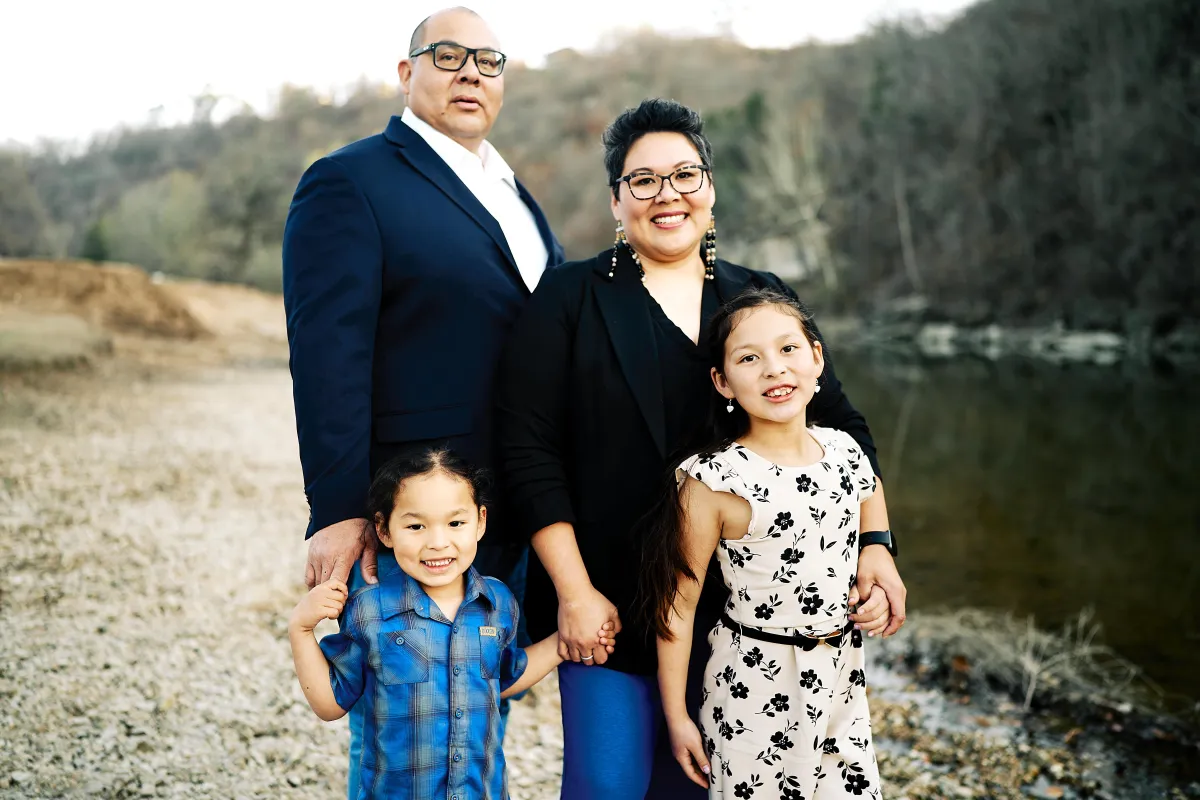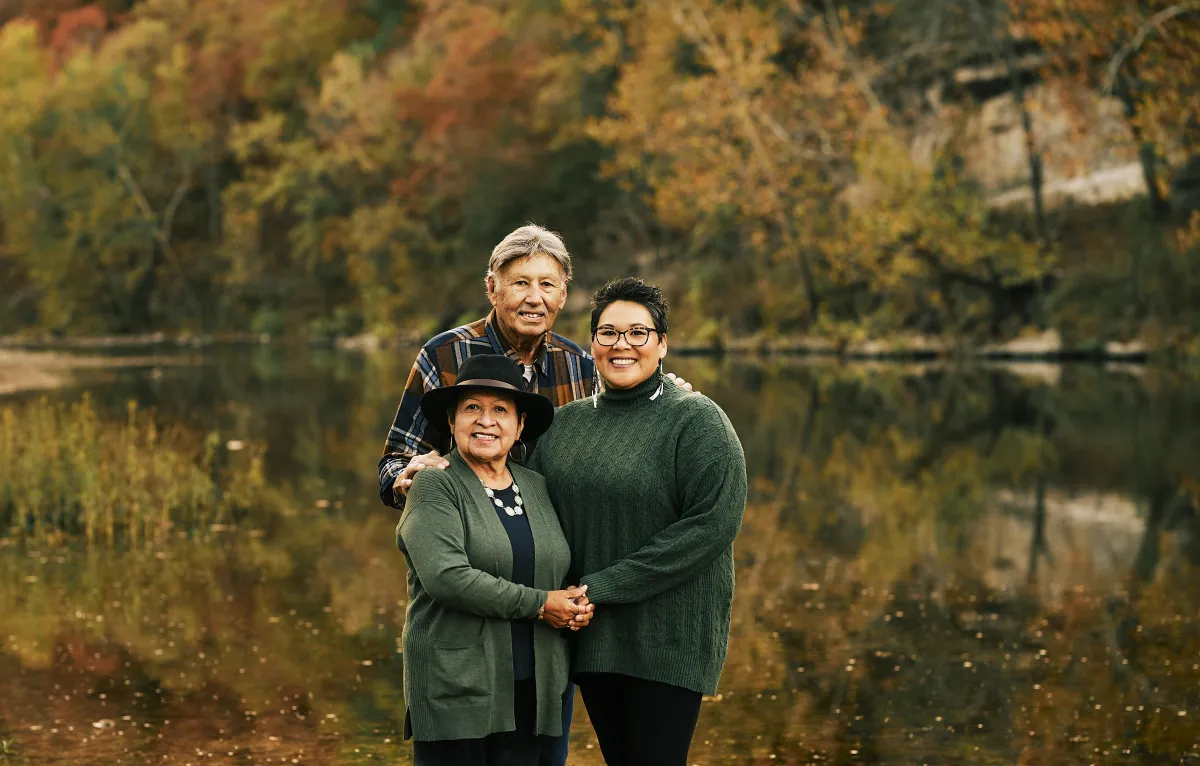
Independent Media: Real, Relevant, and Unfiltered
Cherokee Nation Candidates 2025

Haley Buzzard-Hamilton
District 10 Candidate
Cherokee Nation Tribal Council
1. What or who inspired you to run for office?
From a young age, I’ve been drawn to the Cherokee Nation government — but more than anything, my heart is in service to our people. I’m running to help ensure that every Cherokee voice is heard, and that our communities are not just surviving, but truly stable and thriving. I’ve been inspired by many leaders, both elected officials and grassroots changemakers, who have shown me what it means to lead with purpose. I honor the legacy they’ve built, and I’m ready to carry that forward with dedication, transparency, and heart.
2. What do you see as the biggest challenges facing your district right now?
Health and housing are among the top challenges I continue to hear about from Cherokee citizens across our district. Many families are struggling to access timely medical care, and too often, elders and those in rural areas face long waits, limited transportation, or difficulty navigating referrals and specialty care. At the same time, the need for safe, affordable housing is urgent — from young families trying to get their first home to elders waiting years for repairs or rental assistance. These are basic needs that impact every part of our well-being. As a Council representative, I would advocate strongly for expanded health care resources, better outreach, and more housing programs that meet citizens where they are. Every Cherokee deserves access to quality care and a place to call home — and I will work to make sure those needs are prioritized.
3. What are the biggest challenges facing the Cherokee Nation right now?
Given the significant uncertainty surrounding future federal funding, which currently supports over 60% of the Cherokee Nation's operations, our most pressing challenge is to implement strategies that will ensure our preparedness in the event of federal grant shortfalls in the next budget cycle
4. What solutions do you want implemented to address the challenges facing your district and the Cherokee Nation?
Increased investment in Health Care and Housing is critical. For Health Care, we must explore innovative solutions to access of health like more transportation support, streamline the referral process, and ensure timely responses to contract health care inquiries. Regarding Housing, we need to develop strategies for increasing affordable options for our citizens and the community like the Choice Neighborhood Initiative, that houses a high-quality mixed-income housing, improves the lives of the residents and creates a strong, safe and sustainable neighborhoods. Additionally we need to communicate other housing opportunities like the first-time home buyers program and assistance with housing rehab.
5. Can you work with others who do not share your views to help remedy the needs of your district and the Cherokee Nation? Please provide examples of past experiences where you worked with others who disagreed with you then or in the past and created a positive outcome.
Yes, I can work with others who do not share the same view as I do, Each district is unique and we must be able to articulate the needs of our communities to others in creative ways.
6. What experiences do you feel you bring to the table that make you qualified for the Cherokee Nation Tribal Council?
I began my career at Cherokee Nation in the communications and community services departments, where I learned to consider the broader impact of our work with individuals, families, and the community. I also realized the importance of educating our youth about our history, language, culture, and sovereignty, as they are our future leaders. I later participated in the inaugural Cherokee Nation Leadership Program, which allowed me to engage with various entities of the Nation. I future expanded my experience by work for Cherokee Nation Businesses, building connections with local, state, and federal officials along with local communities where Cherokee Nation businesses were located. I also worked for Tulsa Area United Way, raising millions of dollars to assist partner agencies in providing crucial resources to the community. My involvement with non-profit boards and volunteer work includes: Haskell Indian Nations University Board of Regents, Haskell Foundation, Greater Tulsa Area Indian Affairs Commission, Cherokee Nation Tribal Youth Court, mentoring Native students at Street School, and currently serving on the Food Bank of Eastern Oklahoma and Jay JOM parent committee. Through these roles, I have addressed pressing issues, introduced innovative ideas, responsible for reviewing financials and asking the tough questions.
7. Why do you think voters should trust you?
I will serve with the highest integrity and ethical standards – I ask the voters to hold me accountable and to be transparent with my voting record and all my actions. I will uphold the Cherokee constitution and ensure that as a Tribal Councilor I act as an independent and strong voice for the people. I believe in healthy collaboration – working with the Executive Branch when it benefits our citizens – but also exercising oversight and asking hard questions when necessary. My goal would be to maintain accountability, transparency, and checks and balances, always remembering that my ultimate responsibility is to the Cherokee people, not any political agenda. Strong government means shared leadership, respect for separation of powers, and putting our citizens first.
8. How will you balance the legislative and executive branches of the Cherokee Nation?
Good question — balancing the legislative and executive branches of the Cherokee Nation (or any government) comes down to ensuring separation of powers, checks and balances, and accountability while still promoting cooperation. Without accountability, you risk corruption. Without cooperation, you risk gridlock and failure to serve the people.
9. What does balance between the branches of the Cherokee Nation government mean to you?
To me, balance between the branches of the Cherokee Nation government means each branch – legislative, executive, and judicial – working independently but respectfully toward a common good of our people. It’s about ensuring that no one branch holds too much power, and that every decision is made with accountability, transparency, and fairness. Balance means collaboration without compromising integrity. It means strong oversight, honest dialogue, and honoring the will of the Cherokee people above all else. Ture balance protects our sovereignty, strengthens our Nation, and ensures that future generations inherit a government that serves them, not itself.
All three branches of the government uphold the constitution that was created by the people and for the people.
10. Please provide examples of how you would want to improve transparency in the Cherokee Nation government.
One way I’d provide transparency is by hosting regular community meetings and attending Cherokee community meetings regularly – not just around election time – where citizens can ask questions, share concerns, and hear directly from their council. I’d also advocate for better access to public information and applications. As the world continues to evolve in technology, we need to be using all tools available to keep our citizens informed. If elected, I will return every call, message, or email, because communication should never be a barrier between the people and their government.
11. Please provide examples of how you would want transparency improved in the Cherokee Nation Businesses.
Cherokee Nation Businesses generate significant revenue, and it’s critical that citizens clearly see how those profits are being reinvested into our communities. I believe we need more transparency around how funds from CNB are allocated – we know that 37% of the net revenue (meaning that this is the allocation after all CNB bills are paid) is allocated to the Cherokee Nation government but we should be able to track where those dollars go through regular reports or a public-facing budget breakdowns.
12. Do you think the Cherokee Nation is providing adequate health care for its citizens? Please provide examples.
I believe the Cherokee Nation has made great strides in expanding access to healthcare — especially with the construction of new facilities like the Cherokee Nation Outpatient Health Center in Tahlequah. These are major accomplishments, and they reflect our Nation’s commitment to the health of our people. But we also know there’s more work to be done. Many citizens still face long wait times for appointments, limited access to specialists, and challenges navigating the referral process. Rural citizens often struggle with transportation to clinics, and mental health services remain under-resourced. I believe we can do better by investing in more transportation options, expanding behavioral health services, and making sure our health system is fully staffed and funded. Quality care should be available to every Cherokee citizen — no matter where they live including transportation and patient follow up.
Haley Buzzard for Cherokee Nation Tribal Council District 10
Haley Buzzard
918-200-9416
Facebook -
